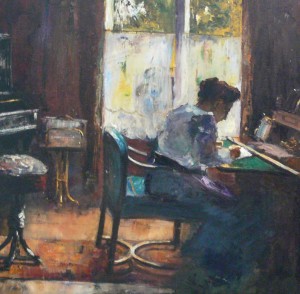Recently, I finished the latest revisions to my young adult manuscript after spending all fall putting it off even though I’d reduced my time at work to 25% specifically to have more hours for writing. The energy and motivation came to  me only after I was hired for a very demanding, new job, starting January 1.
me only after I was hired for a very demanding, new job, starting January 1.
I guess I’d been discouraged. The hardest part about writing this story, and the reason I’m doing it, is that it’s true, not word-for-word true, but all of the events actually happened. It’s the story of a fictional, 14-year-old Armenian boy, named Arakel, caught up in the genocide 100 years ago in the Ottoman Empire. It’s not about any member of my family, but I feel I owe it to all of the people who suffered or died in the genocide to convey what they went through.
Arakel’s nearly dying voice in the desert came to me clearly years ago. At public readings in San Francisco and Somerville, after receiving awards for the manuscript, I’ve read from a chapter in the middle of the book where a camel caravan master picks Arakel up in the desert after he’s spent the night in a cave filled with bones. I’ve hardly revised that section since I first wrote it.
But how did Arakel feel before that, before he knew nearly all of his family, nearly all of the people in his town, nearly all of the Armenians in the Ottoman Empire were going to die? And where should I start the story so teenagers with no knowledge of the genocide or the Ottoman Empire could relate? I’ve tried at least five different points in time, but none worked well.
If you write a book about the Holocaust, everyone knows what happened to Anne Frank. You don’t have to explain who Hitler was. But the Armenian genocide is different. And it’s not just teenagers who might not know. I received a query response from a literary agent on April 24, 2015 — the same day as the 100-year commemoration of the Armenian genocide, after the Pope had recognized the genocide, and the Armenian Church had canonized 1.5 million Armenian martyrs — and this agent suggested I rework the manuscript as a middle grade adventure. For the first and I hope the only time, I lost it with an agent and fired back an angry email. A lot of people died. This wasn’t an adventure.
But there I was, still revising Chapter One, still trying to create an instant connection with readers. My wonderful Critique Group stood by me with helpful suggestions, but by then they knew Arakel nearly as well as I did. I even hired Miss Snark’s First Victim to comment on the first 30 pages. She was brutal: “I’m confused and not in a good way.” And that was just her opening salvo. I won’t repeat the rest, but she ended her critique by saying, “I know you can do this.”
So I had to try. When I reduced my time to 25% at the beginning of September, and my son went off to college, which I instantly wrote about and the Washington Post picked it up for its “On Parenting” Blog (“My college freshman and the very delayed first call home”), I did not get right to work on my manuscript. Instead, I volunteered for added duties at a non-profit, worked out at my health club every day, even cleaned the house — anything other than write.
Then in December, when I got hired for a full-time job to start January 1, that’s what did it. It was now or never. I had to finish. On an unusually warm December morning, I sat on a bench outside my favorite coffee shop in Cambridge, and the first line came to me. It was so obvious I couldn’t believe I hadn’t thought of it before. The rest fell into place.
The other day, I re-queried an agent, whom I’d thought would be perfect, and right away, she requested the full manuscript. It’s in her queue. Three months to wait. I can’t get my hopes up. I’ve been here before. I can’t get too excited, but of course I am. I’m hoping this time will really be it. I’ll let you know.


